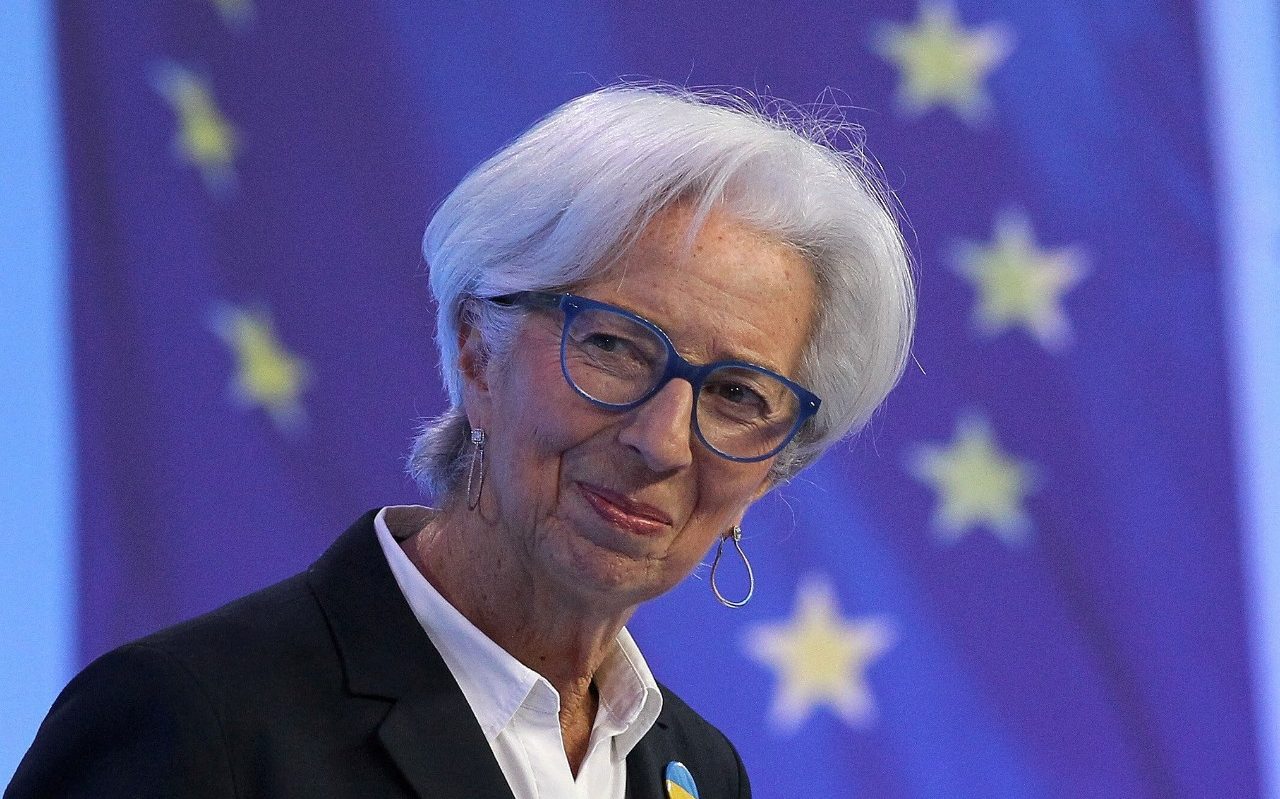Will the euro continue to rise as a result of the ECB's rate hike?
The ECB surprised markets by pushing its benchmark rate up by 50 basis points, bringing its deposit rate to zero.

The ECB surprised markets by pushing its benchmark rate up by 50 basis points
>> Another existential threat for the euro
The ECB may start its rate-hike cycle with more of a bang than a whimper. The euro has already edged up in anticipation of just such a "surprise". The euro rose to a session high on news of the more aggressive rate hike, to trade at $1.0257.
However, Mr. Steve Barrow, Head of Standard Bank G10 Strategy said it would be very unlikely that such rate hikes from the ECB would be the euro’s salvation. Instead, he still sees a slide into the 0.90-0.95 region this year against the dollar.
There are two main reasons why Mr. Steve Barrow doubts that more aggressive monetary tightening by the ECB is not the answer to the euro’s woes. The first of these is that the ECB is just one in a long line of banks that are hiking rates, with the Bank of Japan the only notable absentee.
What’s more, the ECB has badly lacked behind the rest despite the fact that the region’s rise in inflation is broadly comparable to other countries that have been far more aggressive with rate hikes, such as the Fed. Of course, the ECB will argue that its inflation dynamics are somewhat different to the US, with more of the price pressure coming from supposedly temporary surges in food and energy prices, and less due to seemingly more structural factors like the tight labour market as we see in the US (and the UK, for that matter).
The ECB might also argue that its economy is in much greater danger of recession than the US, and hence inflation could be wiped out without the need for such aggressive monetary tightening. This may be true but Mr. Steve Barrow thinks it is quite a leap of faith to believe that the ECB is justified in letting inflation run away now, because it believes that a sharp economic slowdown will bring it down in the future.
In short, catch-up rate hikes are never a good look for a central bank and rarely a signal to buy the currency. And, if all that does not seem enough, just ask the Bank of Canada which produced a surprising and out-sized 100- bps rate hike last week with little discernible benefit to the currency.
But there’s a second, more important reason why Mr. Steve Barrow doubts that the euro will be particularly responsive when the ECB hikes rates. For, while the market appears to be constantly focusing on rates as the driver of currencies, he does not believe that is the case in the current circumstances. That’s partly for the reason we discussed above, which is simply that (just about) all central banks are pushing in the same direction, just at different speeds. Of more importance is that the really significant asymmetries have come in trade, not monetary policy.
While monetary policy trends haven't changed all that much, we've seen some massive trade divergences emerge, none more so than in the eurozone. The region has gone from recording monthly trade surpluses of over EUR25bn 18 months ago to recording deficits of EUR25bn, or more, now. Even the current account, which includes services and net income from asset holdings, among other things, has slipped into deficit in the past three months. This time last year, monthly surpluses were around EUR30bn. Many other countries have seen trade deteriorate as well, thanks largely to rising energy import bills, but the euro zone dwarfs others significantly.
What’s more, it is not as if this deterioration has been accompanied by a healthy improvement on the financial account side of the balance of payments. In terms of direct investment flows, for instance, the last 12 months have seen a EUR250bn deterioration compared to the prior 12 month period. Portfolio flows have improved for the euro zone, but these are more fickle; dominated right now by the horrendous performance of assets this year.
Mr. Steve Barrow said, as far as we are concerned, a stronger euro requires many things. One is some stability in the slumping trade position, another is an end to rising inflation, particularly in the US, and a third is more global economic optimism and an improvement in asset prices. None of these things are likely to happen because the ECB hikes 50 bps and, for that reason, any resultant rise in the euro should be sold.








